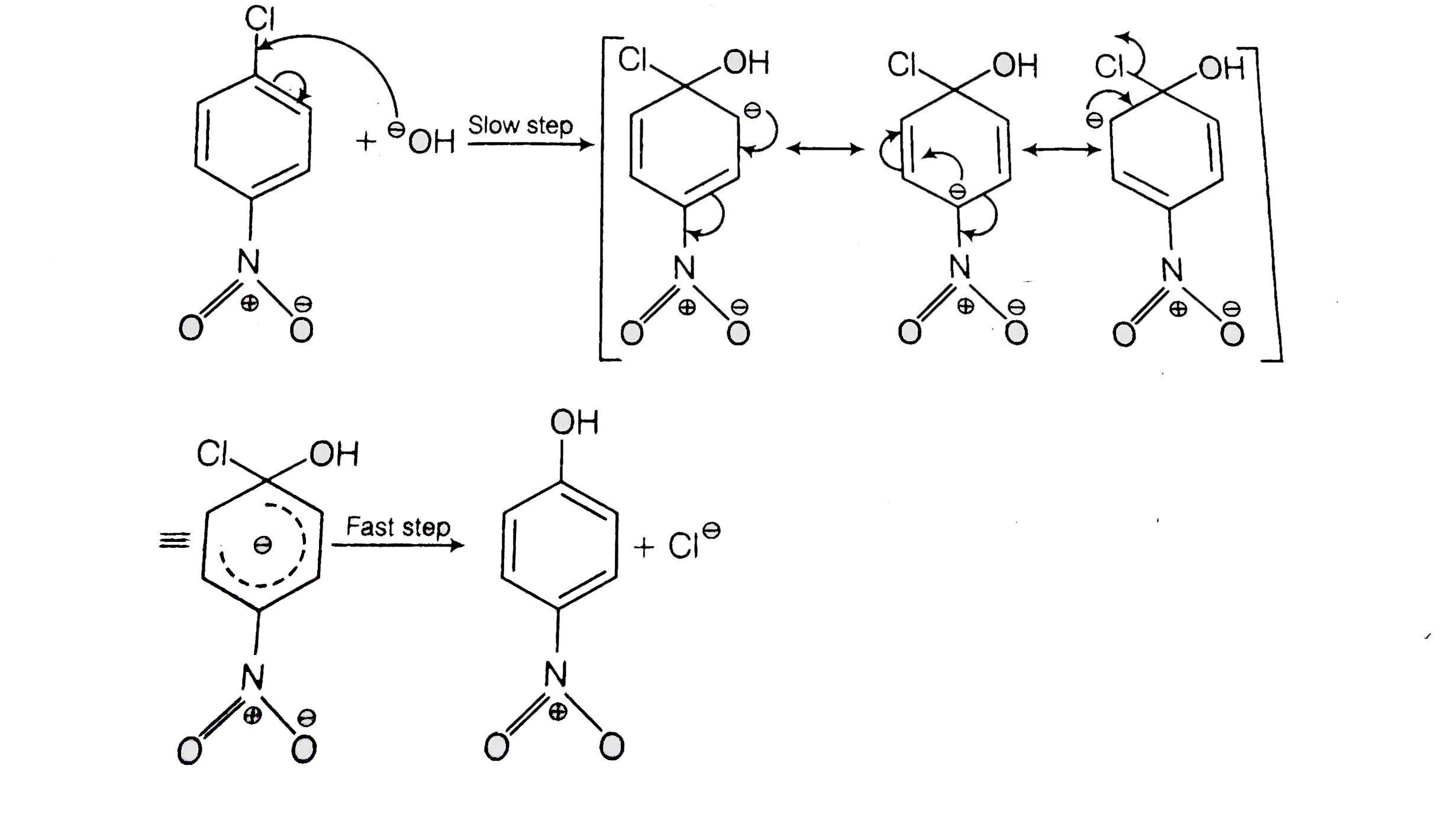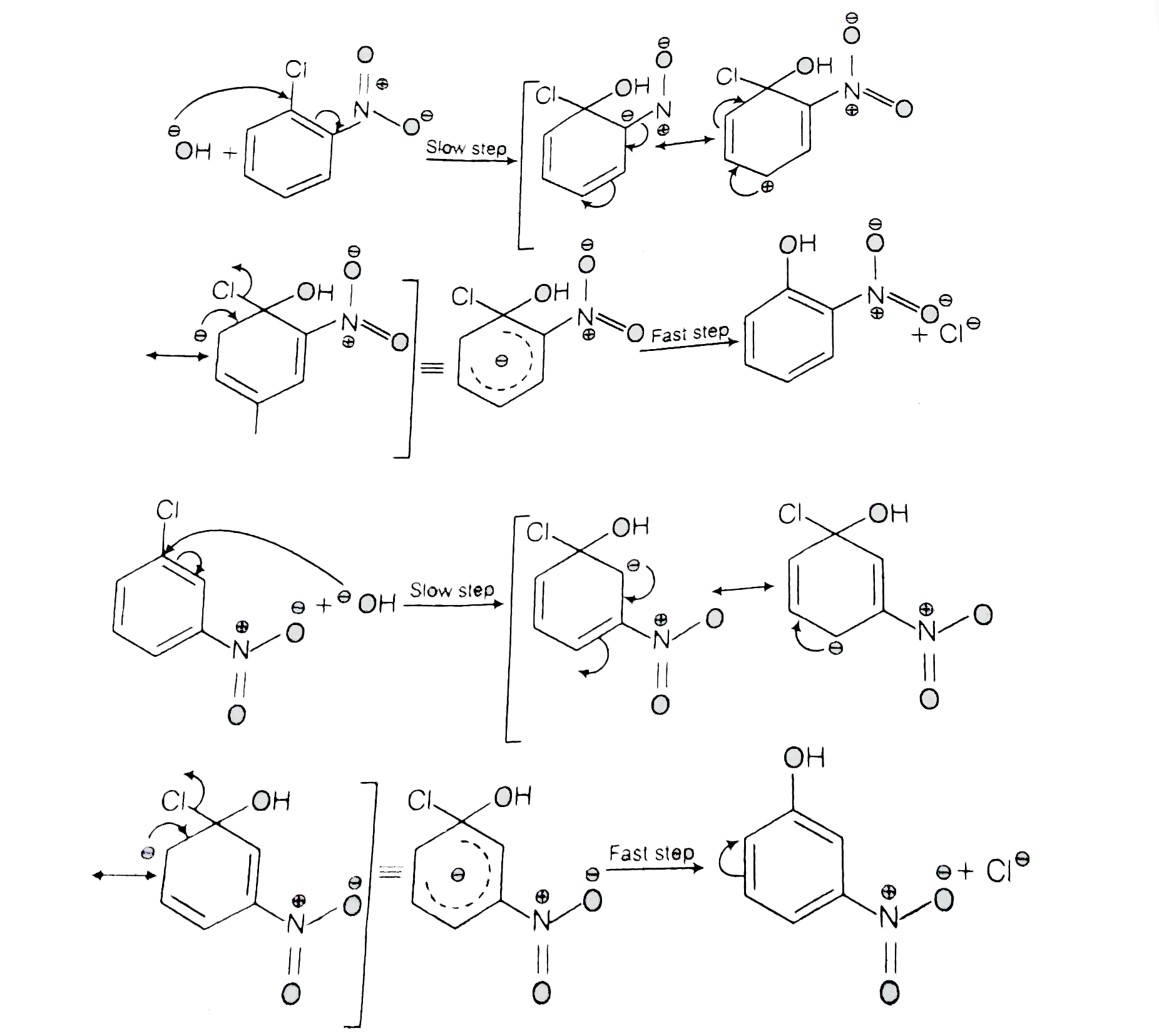Saved Bookmarks
| 1. |
Why are aryl halides less reactivetowards nucleophilic substitution reactions than alkyl halides? How can we enhance the reactivity of aryl halides? |
|
Answer» Solution :Aryl halides are less reactive towards nucleophilic substitution reaction due to the following reasons () In haloarenes the lone pair of electron on HALOGEN are in resonance with benzene ring So, C-Clbond acquires partial DOUBLE bond character which strengthen C-Cl bond Therefore, they are less reactive towords nucleophilic substitution reaction.  (i) In haloarenes, the carbon atom attached to halogen is `sp^(2)` hybridised. The `sp^(2)` hybridised carbon is more electronegative than `sp^(3)` hybridised carbon. This `sp^(2)`-hybridised carbon in haloarenes can hold the electron pair of C-X bond more tightly and make this C-CI bond shorter than C-Cl bond of haloalkanes Since, it is difficult to break a shorter bond than a longer bond, therefore, haloarenes are less reactive than haloarenes In haloarenes, the phenyl cation will not be stabilised by resonance therefore `S_(N)1` mechanism ruled out (iv) Because of the repulsion between the nucleaphile and electron rich arenes, aryl halides are less reactive than alkyl halides The reactivity of aryl halides can be increased by the presence of an electron withdrawing group `(-(NO_(2))` at ortho and para positions. However, no effect on reactivity of haloarenes is observed by the presence of electron withdrawing group at meta-position. Mechanism of the reaction is as depicted with `""^(-)OH` ion.   From the above resonance, it is very CLEAR that electron DENSITY is rich at orto and para positions. So, presence of EWG will fascilitate nucleophilic at ortho and para positions not on meta position. |
|
Discussion
No Comment Found
Related InterviewSolutions
- Which of the following compounds is not cleaved by HI even at 525 K ?
- To a 25 mL H_(2)O_(2) solution excess of an acidified solution of potassium iodide was added. The iodine liberated required 20 " mL of " 0.3 N sodium thiosulphate solution Calculate the volume strength of H_(2)O_(2) solution.
- The suggested mechanism of a reaction is : (a) A+BhArrD("fast) "(b)A+Drarr2C("slow")Write the balanced equation of the reaction if its experimentally deduced rate equation is , rate k=[A]^(2)[B] Find the intermediate formed during the course of the reaction . Does the predicted rate law from the mechanism match the experimental rate law ?
- Which of these changes with time for a first-order reaction A Rate of reaction B . Rate constant C . Half-life
- What is the hybridisation of central atom in the product obtained along with hydrofluoric acid when complete hydrolysis of Xenon Hexa Fluoride takes place ?
- Which of the following amino acid forms sulphide bond in polypeptide
- Which of following pair is Diastereomers:
- What is the major product of the following reaction CH_3C-=C-CH_2-CH_3overset("1 mole of " Cl_2)to
- Which polymer is used in petrol tank linings ?
- Which of the following carbohydrates are branched polymer of glucose ?